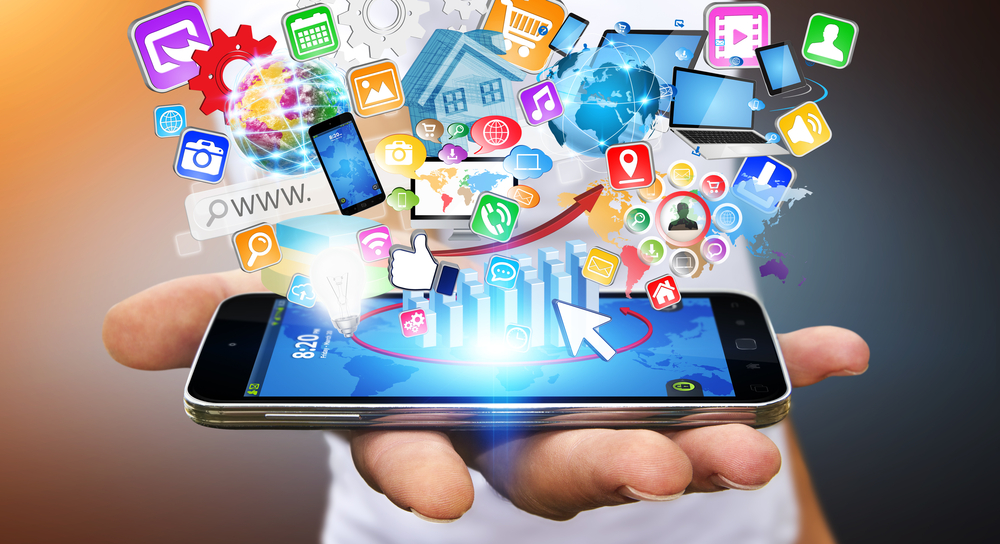How smart, connected devices can help businesses prosper

You might already know that the number of mobile-connected devices has already exceeded the world’s population, and in order to survive, businesses will need to respond.
Smart, connected devices can improve your business efficiency while reducing operational costs. In order to take advantage of these systems, it is important to know what they are, their benefits, and some of the best options to use within your organization.
Defining Smart, Connected Devices
When you hear businesses refer to smart, connected devices, do you have a good idea what they’re talking about? To understand these devices, it is important to know that they will have three elements:
- Physical components. The physical components of a device will include the mechanical and electrical parts of the product. For example, this would include the battery, tires, and engine block in an automobile.
- Smart components. These features include the controls, sensors, data storage, software, and microprocessors found within a product. Using the same example of an automobile, touch screen displays and auto-locking doors can be considered to be "smart" components.
- Connectivity components. These parts include the antennae, ports, and wireless or wired connections associated with an item, allowing the product to exchange information with its greater operating environment.
Benefits of Smart, Connected Devices
There are a variety of reasons that connective devices are becoming such a hot topic while being adopted rapidly by businesses. These tools allow businesses the ability to analyze data that is collected from numerous devices quickly and efficiently. There are a variety of other benefits to these devices that make it clear that all businesses need to jump on the connectivity bandwagon:
- More efficient processes. Organizations can use operational insights that they receive in real time in order to make better business decisions. Real-time data received from sensors can improve and monitor efficiency while minimizing human intervention and reducing energy costs.
- Improved productivity. Productivity is a major parameter that is going to affect the profitability of any business. Smart, connected devices can improve productivity by offering workers needed training, improving labor efficiency.
- Risk management. One of the ways that connected devices can impact an organization is to sense potential faults within a system before a crisis occurs. These devices can prevent expensive problems before they arise, and they can lead to new and efficient way of doing business. For example, a full milk tank at a local dairy farm could signal that a truck is needed to pick up the completed supply, and if a problem arises, the farmer and the milk company will be alerted right away to prevent any disruption of services.
- Better utilization of assets. The use of smart, connected devices can help your business to track assets via the use of connectivity and sensors, including tools, equipment, and machinery. Real-time visibility of your supply chains and assets can be extremely beneficial to a business, as you’ll be able to more easily locate your assets and run maintenance to prevent potential problems.
Connected Devices that Business Should Adapt
Businesses need to adapt to the new world of smart, connected devices. New technologies are constantly being developed, and there are a variety that are already on the market:
- Tablets. Many companies are moving away from the use of traditional desktop or even laptop computers in favor of tablets. The smaller size of this device is one reason, as they are more convenient to transport from one location to another. However, these smart devices are also a great way to conduct presentations off-site. Tablets provide remote access and can connect easily to the projector screen of a conference room, and cloud technology can allow your worker to access his or her presentation from anywhere.
- VPNs and Personal Hotspots. If you have workers that work remotely or travel frequently for business, smart devices with personal hotspot capabilities can allow for a secure network where you won’t need to worry about any "cyber eavesdropping". Once set up, these hotspots can turn a smartphone into a private access point. This will ensure that you have a secure Internet connection even when one isn’t otherwise available.
- Video conferencing. With increasing travel expenses and costs, getting everyone in your team together for a meeting may not be a realistic option. Instead, many organizations have turned to video conferencing services to conduct large group training sessions and staff meetings. Many video conferencing programs will also allow for file and real-time screen sharing, allowing all participants to see the same document at once.
To remain competitive in the business world, it is important to keep your technology up-to-date. By investing in smart devices with Internet connectivity, you’ll transform the way that you connect with your clients, customers, and employees, improving the way that you do business.
Photo Credit: sdecoret/Shutterstock
Peter Davidson works as a senior business associate helping brands and start ups to make efficient business decisions and plan proper business strategies. He is a big gadget freak who loves to share his views on latest technologies and applications.